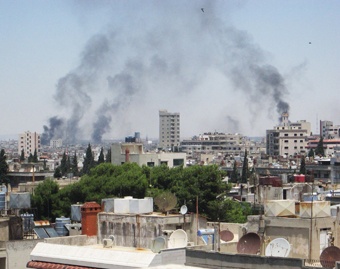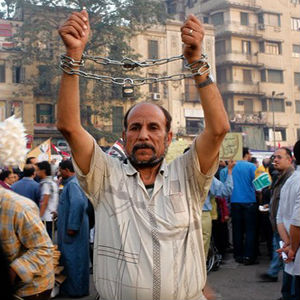
.- Fighting in Syria continues to put pressure on the minority Christian population, leading to fears that more Syrians will join the many Christians who have already left the Middle East. Journalist Nasir Habish told Vatican Radio that Syria’s Christians are among those most affected by the conflict between rebel and government forces. “The Syrian situation, right now, is very difficult, and I think in the future will be more difficult,” Habish said. “And I think the war will continue.” He said Christians are “running away from Syria right now,” with many refugees fleeing to Lebanon and most proceeding to Europe. “We don’t want to lose the Christianity in the Arab region,” he said. “This is the land of Jesus. I can’t imagine the land of Jesus without Christians.” The United Nations has said that more than 60,000 people have died in the conflict. The latest fighting includes a repelled rebel attack around the Taftanaz airbase in the northwestern province of Idlib. Government forces are seeking to recapture the Damascus suburb of Daraya, which hundreds of rebel fighters have held for weeks. Pro-government newspapers report that the latest offensive on Daraya inflicted heavy losses on the rebels, the Associated Press says. The uprising against President Bashar Assad began in March 2011. More than half a million Syrians have become refugees.
The United States has been providing clandestine support for the rebels for months. On Dec. 11, President Barack Obama joined France and Britain in recognizing the rebel coalition, calling it “the legitimate representative of the Syrian people.” The conflict has some sectarian aspects. Rebels tend to be Sunni Muslims, the majority religion in Syria. President Bashar’s government is mainly Alawite, a minority Muslim group. The government has support from some Sunnis and many religious minorities, including many Christians who make up only 10 percent of the population. Many Christians in the region fear Syria will become another Iraq, where poor security after the U.S. invasion in 2003 has allowed militant Islamic groups to target Christians for intimidation, killings and kidnappings that helped drive hundreds of thousands of Christians out of the country. Sister Agnes-Mariam de la Croix, mother superior of the Greek Catholic Monastery of St James the Mutilated in Syria, has charged that the Syrian uprising has been “hijacked by Islamist mercenaries who are more interested in fighting a holy war than in changing the government.” She said the conflict has turned into “a sectarian conflict” in which Christians are “paying a high price,” the Daily Mail reports. She said at least 80,000 Christians have been forced from their homes in the Homs region. Over 300,000 Christian Syrians are believed to be refugees.




